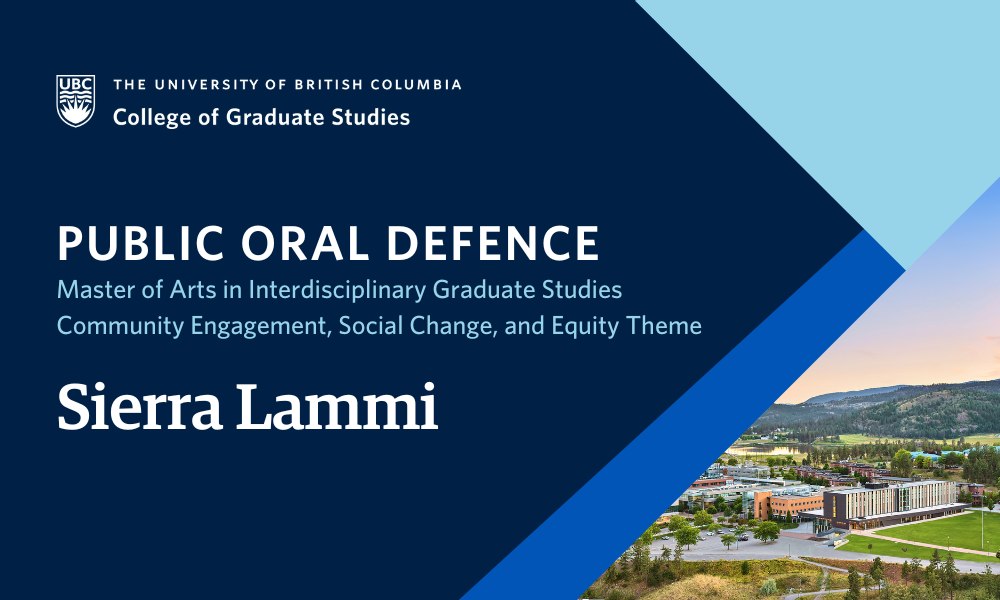
- This event has passed.
Thesis Defence: Mapping our stories: An exploration of youth experiences with climate change
July 17, 2024 at 2:00 pm - 6:00 pm

Sierra Lammi, supervised by Dr. Jon Corbett, will defend their thesis titled “Mapping our stories: An exploration of youth experiences with climate change ” in partial fulfillment of the requirements for the degree of Master of Arts in Interdisciplinary Graduate Studies – Community Engagement, Social Change and Equity theme.
An abstract for Sierra Lammi’s thesis is included below.
Defences are open to all members of the campus community as well as the general public. Registration is not required for in-person defences.
ABSTRACT
This thesis examines the research question: how can participatory mapping help share youth experiences with climate change? Climate change is one of the most pressing issues of the 21st century, and a single understanding or solution remains elusive. We all have various experiences with climate change depending on our relationship to place, and where in the world our experiences are based. Given the variance and complexity of climate change, it is important find ways to share unique place-based stories and experiences so we may understand it from multiple perspectives, across different disciplines and worldviews. Participatory mapping is a method that amplifies the voices of community through mapping their knowledge of specific issues. This research examines the ways that participatory mapping can help us understand and communicate diverse understandings and experiences of climate change. Through three focus groups, students at University of British Columbia Okanagan created participatory maps of their experiences with climate change, and specifically those with the Grouse Complex wildfire that occurred in the Okanagan in August, 2023. Drawing from participatory action research (PAR) literature and prioritizing the situated knowledge of participants, the participatory mapping process facilitated critical dialogue among participants, drawing attention to place-based intersectional relationships and their influence on the ways we experience climate change. This study draws attention to the importance of the participatory mapping process, indicating that the process of creating a participatory map may be just as important as the map itself.